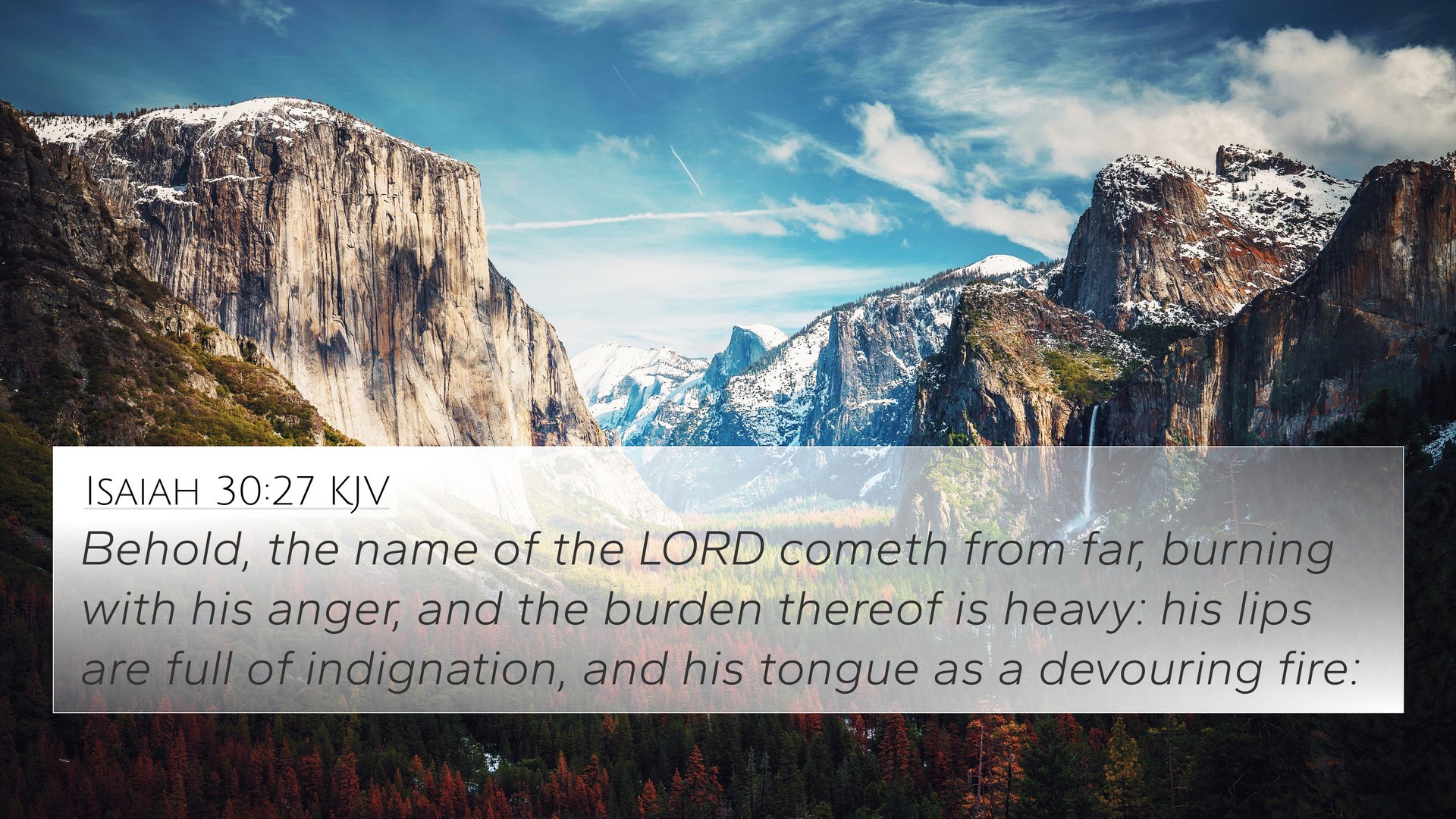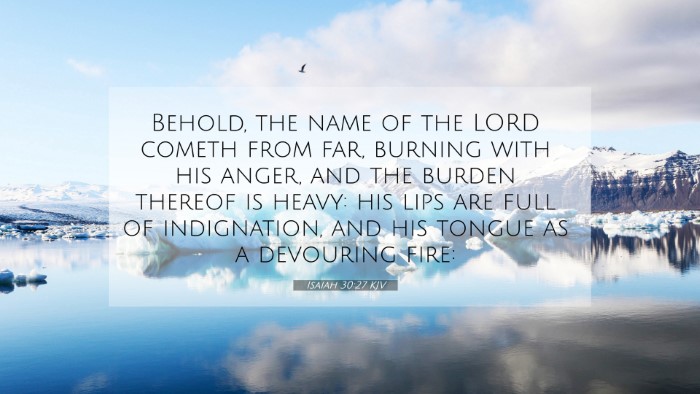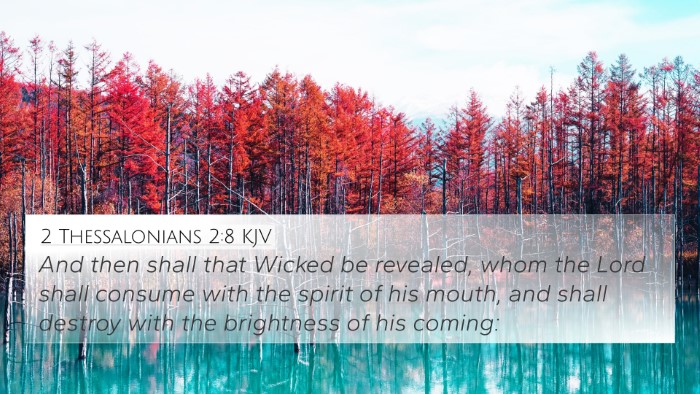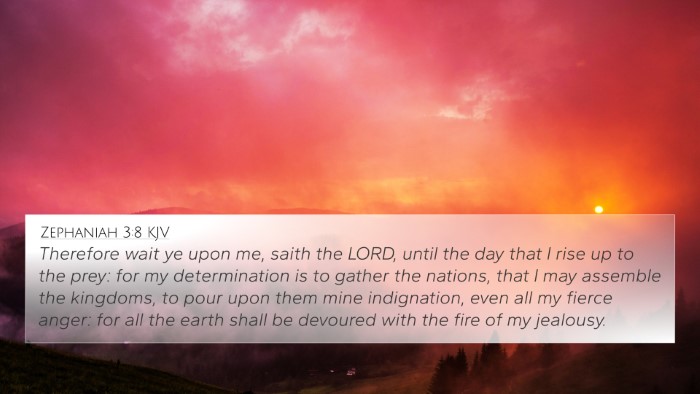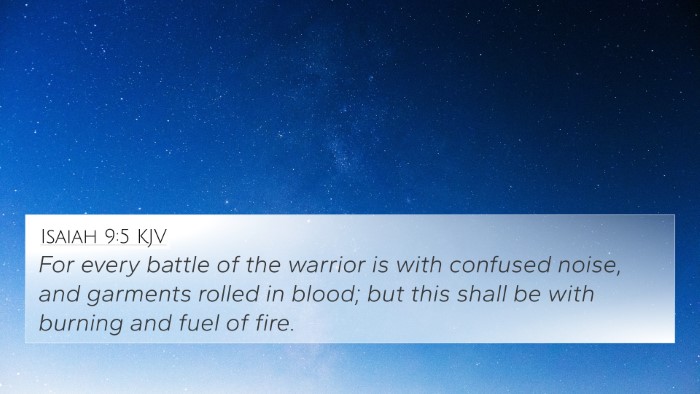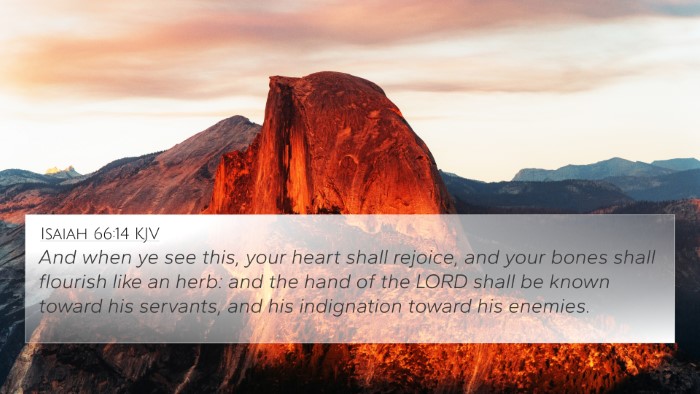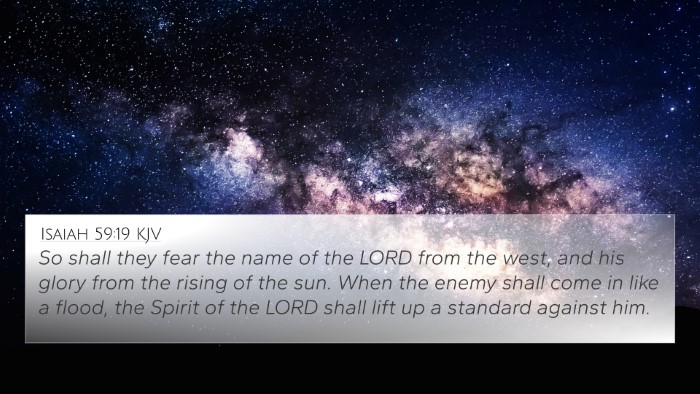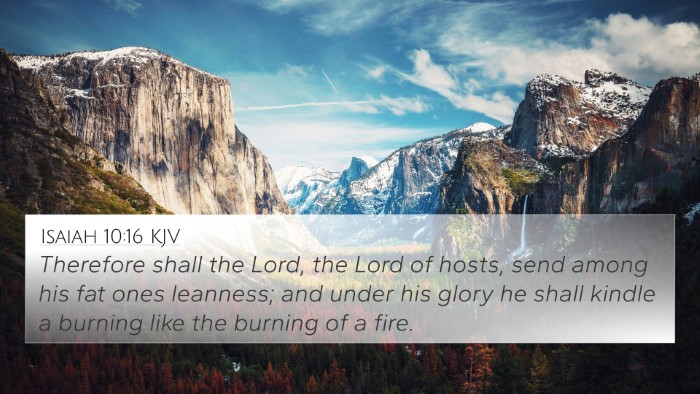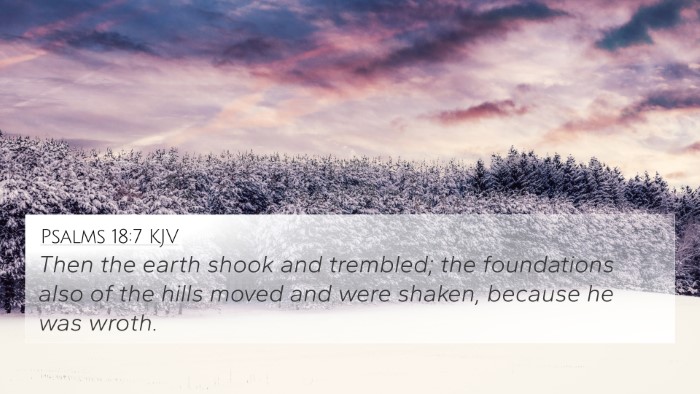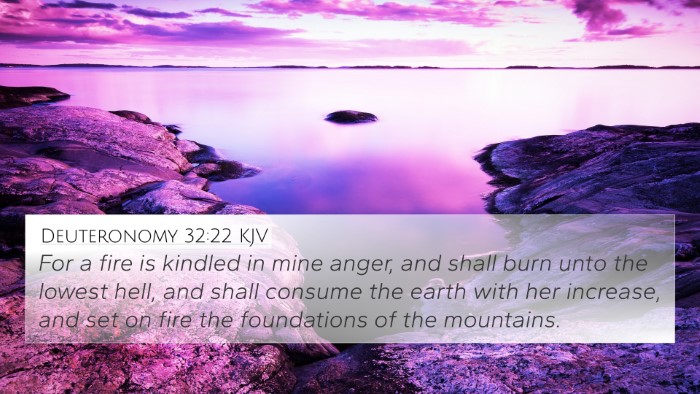Understanding Isaiah 30:27
Bible Verse: Isaiah 30:27 - "Behold, the name of the Lord cometh from far, burning with his anger, and the burden thereof is heavy: his lips are full of indignation, and his tongue as a devouring fire."
Verse Summary
This verse presents a profound message about God's impending judgment and the serious nature of His wrath against unfaithfulness. It showcases a vivid portrayal of God's anger and the weight of His pronouncements, highlighting the intense moral and spiritual gravity that accompanies divine communication.
Meaning and Insights
Insights from various public domain commentaries illuminate the depth of Isaiah 30:27, emphasizing several key themes:
- Divine Justice: Matthew Henry notes the significance of God’s name coming from a distance, symbolizing His authority and the inevitability of His judgment over sinful nations.
- Symbolism of Fire: Adam Clarke explains that the imagery of fire indicates purification and judgment. A devouring fire represents God’s zeal against sin and His demand for holiness.
- Burden of Sin: Albert Barnes highlights the "heavy burden," representing the consequences of the people's iniquities which bring about God's wrath, emphasizing that their rejection of God leads to impending doom.
- God's Sovereignty: The reference to God's "anger" conveys His righteous response to the rebellion of Israel, reinforcing the notion that God's sovereignty includes the exercise of His judgment.
- Prophetic Warning: This verse acts as a warning to the people—indicating that their obstinate paths lead directly to confrontation with divine retribution.
- Intense Communication: The verse indicates the weightiness of what God communicates through prophets, which is imbued with His emotional fervor, evident in the depiction of His “lips” and “tongue.”
- Call to Repentance: The overarching theme encourages reflection and repentance from sin. It serves as a stark reminder that ignoring God’s voice can lead to devastating consequences.
Bible Cross-References
Isaiah 30:27 resonates with various scriptures that echo its themes, establishing connections between Bible verses:
- Isaiah 66:15-16: "For behold, the Lord will come with fire, and His chariots like a whirlwind, to render His anger with fury..."
- Jeremiah 10:10: "But the Lord is the true God; He is the living God and the everlasting King. At His wrath the earth will tremble..."
- Revelation 19:15: "And out of His mouth goes a sharp sword, that with it He should strike the nations. And He Himself will rule them with a rod of iron..."
- Hebrews 12:29: "For our God is a consuming fire."
- Psalm 21:9: "You will make them as a fiery oven in the time of Your anger; the Lord will swallow them up in His wrath..."
- Amos 1:2: "The Lord roars from Zion, and utters His voice from Jerusalem..."
- Malachi 4:1: "For behold, the day is coming, burning like an oven..."
Thematic Connections
This verse can be analyzed through various themes found in scripture:
- Judgment: The theme of divine judgment is prevalent throughout both the Old and New Testaments, highlighting God’s response to sin.
- Anger of God: Various scriptures reflect on God’s anger towards disobedience, urging believers to consider the consequences of their actions.
- God's Persuasive Voice: The ways God communicates with His people are shown through His prophets, inviting them to heed His warnings.
Exploring Cross-Referencing
Engaging in cross-referencing Biblical texts can enrich our understanding of passages such as Isaiah 30:27. By utilizing a Bible concordance or other bible reference resources, one can unveil deeper meanings and connections:
- Identify parallels in other prophetic books.
- Understand how New Testament writings refer back to prophetic announcements like those in Isaiah.
- Explore the implications of wrath and judgment in conjunction with New Testament themes of mercy and grace.
Conclusion
Isaiah 30:27 serves as a powerful reminder of the seriousness of God’s words, represented through vivid imagery and profound emotional undertones. By exploring verses related to this passage and utilizing cross-referencing tools, readers can gain a fuller understanding of biblical themes, the nature of God's anger, and His ultimate call for repentance.
